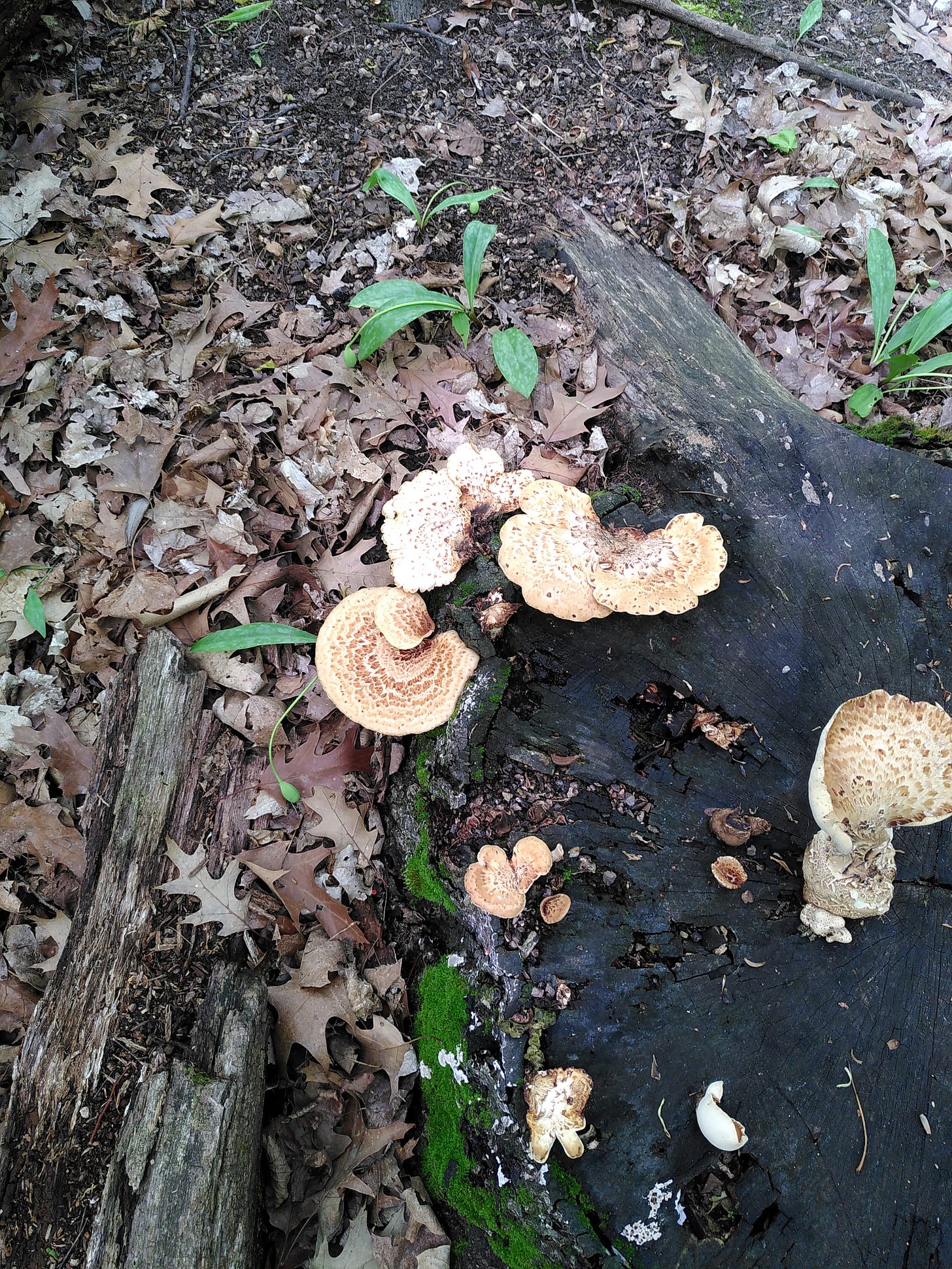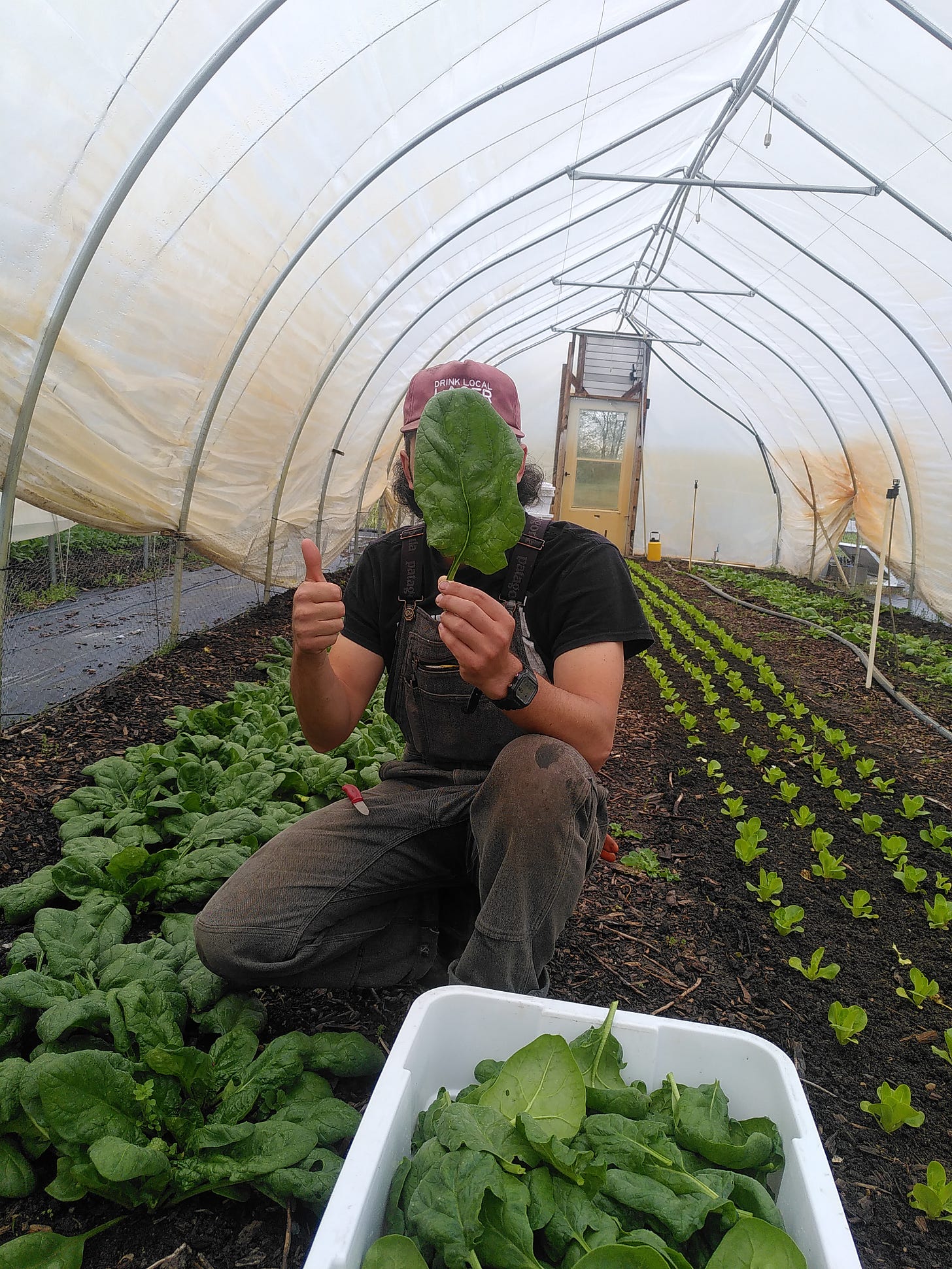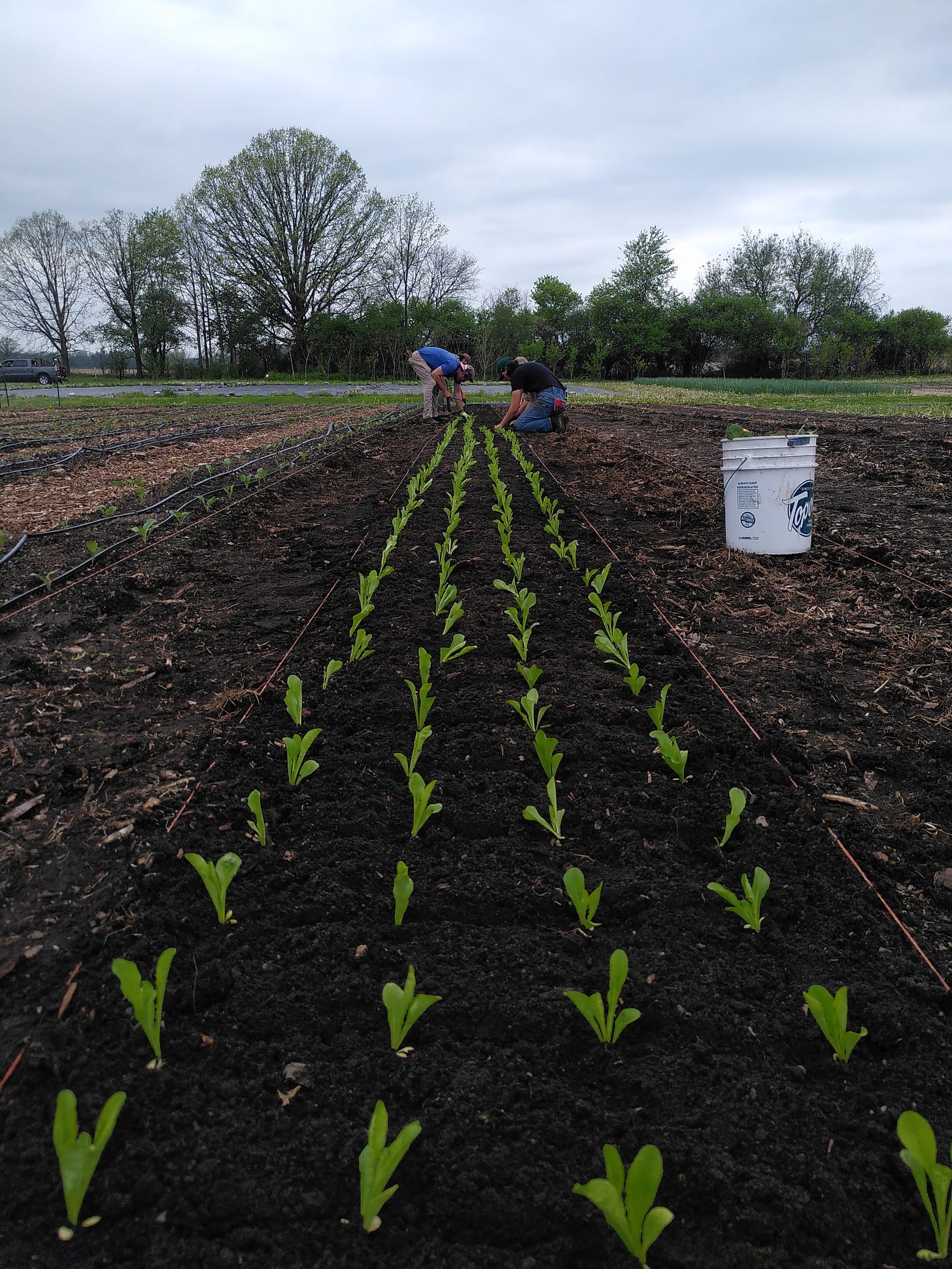Hi all,
We’re trying something a little different this week. I’m not sure if you’ll be able to tell. But we’re trying it anyways. Instead of me stream of consciousness-ing into a voice note and transcribing, I’m flipping the script. Or more accurately I’m writing one. Whether or not I can read this well is another matter. Yikes.
Anyhow, welcome to Scrap Kitchen. The Podcast/Newsletter where I detail the process of managing a farm (with my beloved) while we plan for next year’s farm (in the UK), and how in the hell we go about doing that. If that sounds interesting, fun or like it will be a trainwreck you just can’t look away from, consider subscribing.
If it doesn’t, no hard feelings, but maybe read/listen to a little more of this post and then let me have it in the comments section. Or whatever it is kids do these days.
Some housekeeping: Scrap Kitchen will now be coming out on Wednesdays. 9 am EST is what I’m aiming for. This change is mostly because my work week has adjusted. We are now working Weds-Sunday so that the farmstand and U-Pick can be open. And thus my writing/reading/speaking must be adjusted too.
In personal life updates I have been snatching time between the unending Asparagus harvest and the demands of the season to be a Beta Reader for a friend’s manuscript. Over the winter I wrote about 65k words of a little story and have now sent it off to various people so they can tear it apart (and hopefully make it better). In all honesty, I had quite literally forgotten I had done this. Was too busy with the farm itself and reading someone else manuscript. Which is actually ideal for when the absolutely eviscerated manuscript returns to me. Or at least I hope it will be. All this to say, I’ve been busy (so busy I forgot I wrote something book-length lol).
Current Farm Updates
You might have heard it in the frantic tone, or the otentios words of last week but Asparagus is here. It’s back, baby. For the next 6 weeks, the farm team and I will be harvesting the 3 acres of Asparagus on the southern side of our cultivation area.
If you haven’t harvested asparagus before, the process is pretty simple. Wait until it’s longer than your hand, reach down with said hand, grab the stalk and SNAP. Put the Asparagus into a bucket. Repeat. And yes, it really does grow like its a practical joke.
Not only is the Asparagus keeping us busy but so is the opening of the CSA and FArmstand. We now have over 50 people signed up to pick up vegetables every week. These shares have to be harvested, rinsed, bagged, packed and handed out. All while we sell the spare vegetables at the Farmstand. The way the Asparagus has been growing, we have plenty spare.
The start of the CSA, which will continue uninterrupted for the next 24 weeks, has got my partner and me thinking about our future farm. About how, where and to whom we wish to sell vegetables. There are so many things to consider; do we do delivery? Do we allow flexibility (where people have a prepaid card and select what veg they want each week)? Do we keep things simple and do the same share for everyone (and thus intimidate people with new vegetables, or worse overload them and eventually waste veg)? Do we collaborate with other farms? Where would people pick up if we don’t deliver (local schools, markets, libraries)?
And that’s just one element of the farm.
Which then raises the question: Why even do a CSA?
At least for that, we have an answer.
When someone purchases a CSA share from their local farm they aren’t just buying vegetables. They are investing in the future of the farm. A literal farm share. They are putting their money behind local agriculture, and in return, they get future vegetables. How very stock market.
But they aren’t just getting vegetables or the promise of them, they are staking a claim in the farm and its produce. I care enough about this farm to commit to them for a season. This sense of connection, fostered over time lets people get to know that farm, their local region and what is seasonally available.
In return, the farmer gets a sense of security that is sorely lacking in most agricultural interactions. The farmer knows that people who have paid ahead will eat what is produced. This can be planned for. Guaranteed 50 lettuce heads a week already sold is a weight off any farmer’s shoulders. Not only that but purchasing a CSA share in the early season allows farmers to work without ‘earning’ to begin with.
The spring is a time when you are planting, prepping and generally getting the plants/farm ready to grow. It’s not a bountiful time of harvest, not usually. So how does a farmer pay their workers? How do they pay themselves?
More often than not, they get into debt. The average farm in America is $1.3m in debt. Let the enormity of that number settle into your bones.
Of course, I have some caveats. This is industrial, conventional, chemical agriculture. They already exploit their workers, they already make measly margins. But if this is what it’s like for state-sanctioned farms, those supported by grain subsidies and expensive chemical intervention, imagine how rough it is for less conventional farmers.
This is not the kind of farm we want to run. Not by a long shot.
To avoid crushing debt, to grow for people, not feedlots, you need have a little community buy-in. And startup capital (there go our savings). CSA’s help with this. A tricky time for small farmers when they struggle to have the capital for the new season. Along with assured customers at the other end.
On the customer’s side, CSA’s work out cheaper in the long run. The contents are often worth much more than the share itself (not just because the farmer is grateful for the initial support), since CSA’s allow farmers to distribute abundance, to give back when they have more.
All this to say, look for a local CSA. Via Community Supported Agriculture in the UK and Local Harvest in the US. Sign up today.
In other farm news, we have one more team member starting soon. We’ve also planted all our Brassicas, thanks to a local Girl Scout troop. Our tomatoes are planted in the tunnels and are ticketing to outgrow their pots and be planted in the great outdoors. We’re waiting on some cold nights to pass but then those babies are going in the ground.
We also have our ARCHES UP. That was me shouting. Joy. Excitement. Fear that my butterfly blue peas are not germinating well at all. But no matter. The Arches are up, ready to be stocked with funky cucumbers (Salt and Pepper, Bothbys Blonde, Lemon and Cucuamelons) and stunning runner beans.
The farm is really shaping up. Each block is uncovered from its winter occultation to be planted full the moment it sees the sun. But on the horizon, this week, in fact, we will be getting a delivery of 11,000 frozen strawberry plants. All they need is thawing, then planting. Easy.
May is a big month. Just like with the squash bugs, it’s crush or be crushed.
Future Farm Update
This is it, I’m saying it. We will have a business plan in to the Landmatch Scheme by the end of the month so-help-me-god. Is this the crunch time of the year? Yes. Is this when we also need to start getting a Visa? Yes. Is it a lot? Also Yes.
But we can also do it. So that’s fine.
Mostly we’re chugging through the financials at the moment, in the snatched hours between farming and having a life. And we shall keep on trucking until the deed is done.
So that’s it, that’s all.
I’ll see you all on the flipside (next Wednesday).
M
Find me on Instagram, The Dots and my Website.
To support my work, please consider buying me a Coffee.
If you missed the last update, read it here.

















Share this post